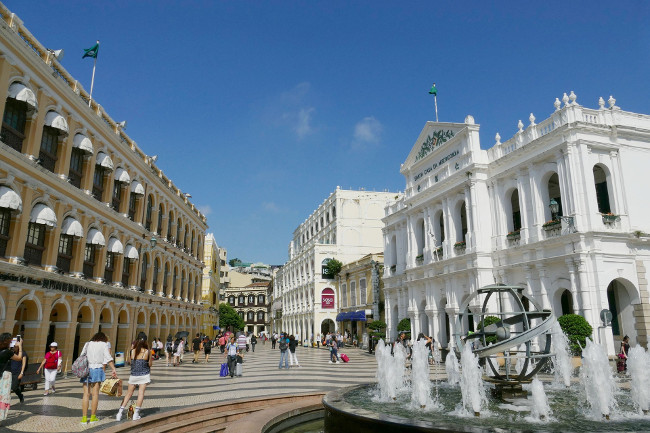There is one corner of the Far East that is rapidly gaining a reputation as a must-see travel destination among westerners. Macau is an autonomous city on the southern tip of China, just miles across the Pearl River Delta from Hong Kong. Prior to the turn of the millennium, Macau was a Portuguese colony and had been so since the mid-16th century when it was leased to the Portuguese Empire as part of its plans to improve trade links between east and west.
The city was returned to China back in 1999 but has since been allowed to operate as a special administrative region, with a system of government separate to that of mainland China. One of the biggest differences between Macau’s laws and that of mainland China is that Macau is the only city in the entire country to legalize land-based casino gaming. People from all over the mainland venture to Macau to have a flutter, and in recent years it has become known as the world’s gambling capital; overtaking Las Vegas in terms of annual revenue at a ratio of about seven-to-one.

Although the number of state-of-the-art slot machines has increased on Macau’s casino floors in recent years – up from 11,856 in 2008 to 16,058 in 2018 – the revenue generated from their slots pales in comparison with that of their baccarat and VIP baccarat income. While slots raked in just over 15 million patacas (MOP), baccarat and VIP baccarat generated a combined revenue of more than 268 million patacas in 2018. As there’s no local online gambling presence, visitors to the city that don’t enjoy the casinos’ slot areas can still log in to offshore iGaming operators and play the latest titles, including Lucky Pants Bingo’s newest gem-themed release, the Gemix slot, featuring an assortment of coloured gems that hark back to the successful Starburst slot title.
Away from Macau’s casinos, the city’s culture and personality are some of the most unique you’ll find anywhere on the planet. Its fusion of western and eastern influences can be seen everywhere, from its architecture – including the vibrant mosaic-patterned Senado Square – to its local cuisine – combining Mediterranean and Asian flavours to mesmerising effect. Street food is particularly popular here in Macau, and there are some must-try dishes such as its pork chop buns, Macanese-style pastel de nata and almond biscuits that prove very popular among locals and busy tourists alike.

The remnants of Macau’s Portuguese and Catholic heritage can be found overlooking the heart of the city. The Ruins of St. Paul’s are the final reminder of the 17th-century cathedral built by the Portuguese and is now an official UNESCO World Heritage site. Beach-lovers can also take time away from the helter-skelter nature of the world’s most densely populated city by heading to Macau’s coastline and its weirdly-impressive black sand beach called Hac Sa Beach, the largest natural beach in Macau.
Significant investment has seen Macau improve its transport and infrastructure links with neighbouring Hong Kong in recent years. The recently-opened Hong Kong-Zhuhai-Macau Bridge provides a direct road link between both cities, which makes it easier than ever to experience Macau for those transiting via Hong Kong. With the world’s fourth-highest life expectancy, a global entertainment scene and a burgeoning nightlife, Macau is an urban experience like no other.
Image at the very top of the article credit: Prasit Rodphan/Bigstock.com






















